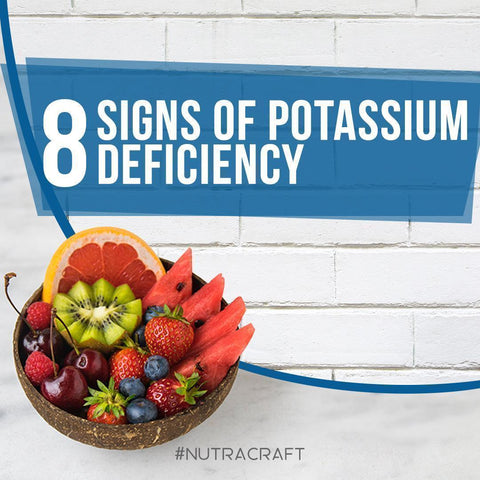
Aches and pains are certainly an inescapable part of life. You’ll experience them at some point. Rather than just being random occurrences, though, pain can sometimes be a clue to our state of health.
Headaches are an occasional nuisance for some, but for others, they can be debilitating and severely interfere with daily life, affecting work, play, and relationships. If you get headaches from time to time, it could be your body telling you that something is out of balance. After all, some people get a lot of headaches and some hardly ever get them. There has to be a cause, right?
Just as the skin − the body’s largest organ − can give insight into the vitality of the whole body, the pain in your head can give clues about what’s going on inside you. Let’s take a look at some of these possible clues.
Headaches are caused by activation of nerves that conduct sensations in the scalp, around the skull, and the lining of the brain.[1] The brain tissue itself doesn’t transmit pain.[1] Experts think that when blood vessels dilate around any of these nerves, the pressure put on the nerves results in a headache.
Headaches could mean:
1. You have magnesium deficiency.
Magnesium is one of the most important nutrients for the body as it is involved in the activity of more than 300 enzymes. In other words, it’s essential for your body to work well. You need it to make energy (and paradoxically to feel relaxed), keep your heart beating, keep the vascular system functioning properly, and maintain the synthesis of neurotransmitters. In short, every cell in the body needs magnesium.
And frighteningly, magnesium deficiency is thought to be so prevalent that around 50% (or higher) of people in the U.S. are deficient.2 Eating processed food and declining magnesium content in soil is thought to be responsible for this. Also, some people might have an inability to easily absorb magnesium.3
Maybe because it is critical in relaxing blood vessels, magnesium levels have been shown to be low in migraine sufferers.3 In fact, some researchers recommend that all migraine sufferers should be treated with magnesium!3
Exclusive Bonus! Download the FREE report ‘5 Top Supplement for Optimum Health’ by clicking here.
2. You are stressed out.
You can use all sorts of practices to reduce stress. Exercise, hobbies, meditation, or even supplements can help keep stress at bay.
The ravages of stress are all too obvious to most people because of the toll it takes on the way you feel and look, as well as your overall health. Stress seems to be tied to most ailments, and headaches are no exception.4 Tension headaches are commonly attributed to stress. These headaches feel like your scalp is being squeezed.
3. You have low serotonin.
You probably know serotonin as a mood-enhancing neurotransmitter. When people take anti-depressants, they are taking drugs that increase the amount of serotonin in their brains.
Interestingly, low mood is also linked to headaches, and researchers think this is because of low serotonin.5 Scientists are studying how low serotonin levels induce headaches, but it’s thought that vascular effects (contraction and dilation) play a big role.
4. You have low estrogen or sudden fluctuations in estrogen (if you are a woman).
Sex steroid hormones are involved in much more than sex. Estrogen and testosterone greatly affect our bodies, and it is known that estrogen regulates blood vessel dilation.
Seventy percent of migraine sufferers are women, and researchers have connected chronically low estrogen and menstrual fluctuations with migraines. Estrogen administration to low-estrogen women who suffer from migraines improved their condition.7 Low estrogen can produce a cascade of metabolic signals that leads to excessive vasodilation and thus the activation of nerves.
Crucially, estrogen also regulates mineral metabolism and can alter magnesium levels in the brain, affecting vascular dilation.8
5. You have low melatonin.
Melatonin is a metabolite of serotonin, so if your serotonin is low, chances are your melatonin is too.
Melatonin is a hormone and a powerful antioxidant that helps ready the body for sleep. Migraine sufferers have been found to have low melatonin, and the administration of melatonin relieves sufferers of pain and recurrence of headaches.9
6. You are dehydrated.
You are made mostly of water. It is about 70% of your weight. When you are not drinking enough water or are eating too many dry and salty foods, your brain suffers. Headaches are indeed correlated with dehydration, and rehydrating can alleviate them in some cases10
7. You get too little or too much sleep.
As early as 1873, the correlation between sleep and headaches was documented.11 Though the reason for the correlation is still somewhat uncertain, sleeping too little or too much can trigger migraines for some.11 Generally, for most people, seven to eight hours is the optimal sleep time.
8. You have anemia.
One of the symptoms of anemia, a condition that causes a lack of red blood cells or hemoglobin, is consistent headaches. If you have anemia, you aren’t getting enough oxygen delivered to your cells. Fatigue and weakness are common symptoms, and if you have this condition, you could be deficient in iron or vitamin B12.
9. You may even have diabetes or fibromyalgia.
Don’t let it worry you too much, but it is true that headaches are a symptom of many illnesses.13 Fibromyalgia brings general body pain and weakness, and its causes are still hard to narrow down. Type II Diabetes, of course, is a scourge in much of the developed world, and it is marked by insulin resistance, high blood sugar, and obesity.
10. You have sinus problems.
Sinus inflammation or infections can cause pressure changes in the head and lead to headaches.14 So washing your sinuses out with a Neti pot and using decongestants or antihistamines might help your head pain if you have sinus issues.
11. You drink too much caffeine.
Caffeine withdrawal can trigger headaches.15 Relying on caffeine on a daily basis causes vasoconstriction, and if you can’t get your daily fix, your blood vessels, which are used to being forced to constrict, can over dilate. And then the pain starts.
12. Brain tumor!
It’s very unlikely. But in the worst case scenario, and if the headaches occur suddenly and continue for weeks or months, a malignant growth is a possibility.
Conclusion
If you have headaches, start with the basics in order to manage them. Practice health-promoting lifestyle habits: hydrate, get healthy amounts of sleep, get some exercise, and keep caffeine consumption consistent. Moderate your caffeine intake or don’t consume it at all.
Once you’ve checked all the boxes of healthy habits, perhaps visit your physician who can address deeper health issues like hormone (including neurotransmitter) balance, sinus problems, or diseases such as diabetes or anemia.
If life gives you lemons, make lemonade. For some, headaches might be a helpful hint on ways to improve their health and confront issues that need confronting. The aches in your head might be used to improve the state of your whole body. And luckily, there are many ways to lessen the severity and recurrence of headaches, such as addressing the risk factors we outlined above.
Nutracraft offers some products that might help with headaches due to their overall support of health. DigestEzy Digestive Enzymes and Milk Thistle Extract are two examples.










